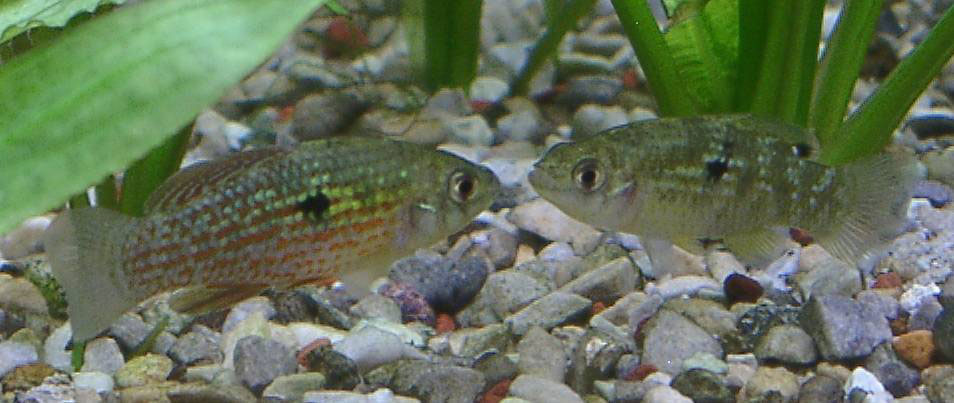Rebecca Hale
Biological Science, FSU
Research Interests
The goal of my research is to understand variation in parental care by investigating how much variation in care behavior is really adaptive and how much can be explained by non‐adaptive (e.g., phylogenetic and physiological/developmental) influences. To accomplish this, my work integrates experimentation and modeling to examine the interplay between natural and sexual selection on reproductive behavior. Using models and experiments in concert creates a critical link between theory and empirical data. Specifically, experiments allow patterns of local adaptation of care behavior to be separated from adaptive plasticity, and joining experimentation with modeling allow hypotheses to be tested at scales often not possible through experiments alone. I use a variety of methods to test hypotheses about care evolution on scales ranging from the evolution of parent-offspring interactions within species to trait coevolution across phylogenies.
My current research tests the hypothesis that parent‐offspring interactions in early development determine selection on parental effort, particularly through the evolution of physiological and developmental processes that determine how offspring fitness changes as a function of parental effort. Through this functional relationship, offspring development and parental effort should coevolve, as these traits reciprocally shape each otherís adaptive landscape. Other aspects of my work focus on refining current models of parental investment, particularly with respect to the hypothesized influence of a broodís reproductive value on parental effort, and the influence of abiotic conditions on reproductive investment, as mediated through physiology.
Coevolution of parental effort and early life traits
The evolution of parental care must be strongly influenced by developmental and early life history traits because these traits determine how offspring benefit from parental effort and the optimal type and amount of care to provide. Yet, this has rarely been a focus in research on the evolution of parental care. My graduate work illustrated the important role of the functional relationship between parental effort and offspring fitness that ultimately led to the coevolutionary process I am currently exploring. In my masterís research in flagfish (Jordanella floridae), I found that males reduced egg fanning as oxygen declined, in opposition to patterns in other species (Hale et al. 2003). This suggested that fanning may not be sufficiently beneficial to flagfish embryos in hypoxic conditions to outweigh its energetic costs and that fanning as a means of aeration may have less of an effect on embryo development in flagfish than it does in other species. I further argued that this difference among species may reflect different stages of a coevolutionary process between embryo develop and parental effort, which in turn may be explained by the considerably more recent appearance of parental care in the flagfish ancestry than in those of the other species.
I built on these ideas in my doctoral research, examining how the benefits offspring receive from care influence the evolution of parental care through both natural and sexual selection. I found that salinity determines what types of parental care are most beneficial for offspring (Hale, in press) and influences female preferences for nest-tending males (Hale and St. Mary 2007). Although both the natural and sexual selection benefits of providing care were greater in fresh water, male parental behavior did not change with salinity. I then measured metabolic costs to determine whether higher costs in fresh water might balance the benefits of care, but I found no effect of salinity on metabolic rate, suggesting that male behavior may remain constant despite variation in selection on care if the costs of care are moderate compared to the benefits (Hale, in review).

I am currently exploring how evolution of the relationship between parental care and the benefits offspring receive influence optimal care within species and variation in care among species. First, I am examining correlation between parental effort and early life traits across taxa. Using phylogenetic comparative methods, I am testing the hypotheses that 1) parental effort and hatchling development category (e.g., position along the precocial‐altricial spectrum) are correlated, with altricial species receiving more care, 2) evolutionary losses of parental care are less likely in taxa that exhibit large offspring fitness benefits from care, and 3) evolutionary transitions to greater levels of care are associated with particular developmental traits. I currently am testing hypothesis 1 in birds.
Second, variation in investment within species should produce variation in offspring traits, such as developmental traits that influence fitness responses to increased investment. I am experimentally testing this hypothesis in the Poeciliid sailfin molly (Poecilia latipinna). Female mollies are facultatively matrotrophic, with the level of energy allocated to embryos depending on the resource environment. I am exploring whether differences in the level of matrotrophy are associated with differences in rates of abortion and embryonic growth.